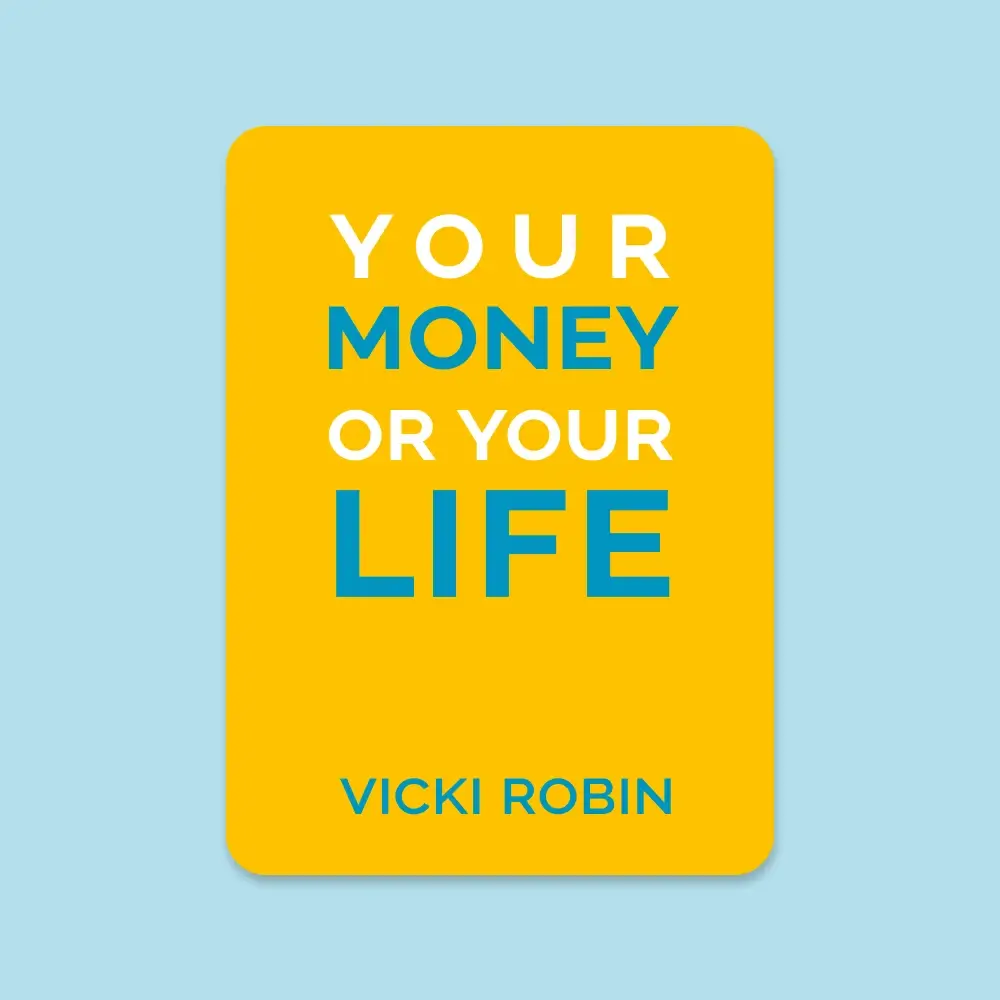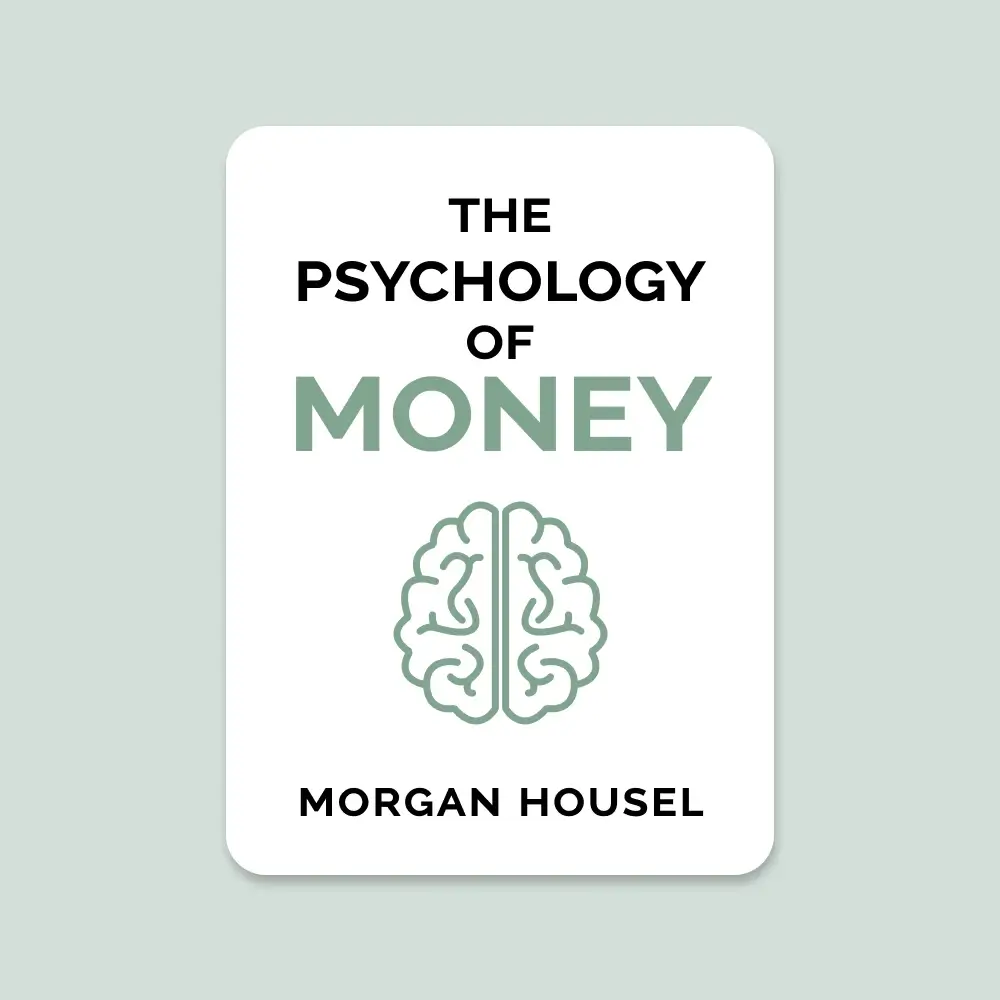
Your Money or Your Life
💰 Money = life energy - Every dollar you spend is a trade-off for your time and energy. Spend consciously.
🔄 Break the earn-spend-repeat cycle - We work to buy stuff we don’t need, which sends us back to work. Interrupt the loop.
📊 Track every cent - Awareness is power. You can’t fix what you don’t measure.
🎯 Align spending with values - Ask: Does this bring fulfillment? Does it match my purpose? Would I still spend if I didn’t need the money?
🔁 Live below your means - Spend less than you earn. Save, invest, and reclaim freedom from the paycheck grind.
📉 Frugality = joy-to-stuff efficiency - Get more happiness from less stuff. Maximize joy, minimize waste.
🛑 Stop trying to impress others - You won’t win. They won’t notice. Be authentic and intentional.
📉 Lower monthly expenses - Cut unconscious costs. Conscious spending reduces stress, waste, and environmental harm.
📈 Reach the Crossover Point - When passive income > monthly expenses, work becomes optional. That’s real financial independence.
💼 Value your job’s life energy trade - Choose roles that pay well, but also protect your health and integrity.
📚 The 3 pillars of financial independence - Capital (investments), Cushion (emergency fund), Cache (reserves for long-term needs).
🌱 Choose quality of life over standard of living - Don’t inflate lifestyle. Upgrade meaning, not material.
♻️ Conscious consumption = planet care - Every wasteful purchase drains resources and your life. Spend as if Earth depends on it—it does.
-
We’re chasing more money and more of the things it can buy, without questioning the big picture of exactly what we are buying and why.
-
Endless desire is one of the pitfalls of human nature, and one of the first things you need to cure if you want to get ahead more quickly.
-
Even though some people really like their jobs, very few of us can say with honesty that our work lives are perfect. The perfect work life would offer enough challenge to be interesting. Enough ease to be enjoyable. Enough camaraderie to be nourishing. Enough solitude to be productive. Enough hours at work to get the job done. Enough leisure to feel refreshed. Enough contribution to feel needed. Enough silliness to have fun. And enough money to pay the bills . . . and then some.
-
The bottom line is that we think we work to pay the bills—but we spend more than we make on more than we need, which sends us back to work to get the money to spend to get more stuff—that sends us back to work again!
-
“More is better” turns out to be a formula for dissatisfaction. If you live for having it all, what you have is never enough.
-
Money is also like water—it flows, and as it flows, it nourishes life. We feel happy when it flows our way, distressed when it doesn’t.
-
Money is money and love is love and never the twain shall meet.
-
Keep track of every cent that comes into or goes out of your life.
-
Money is something you trade your life energy for.
-
Money spent on / Real hourly wage = Hours of life energy
-
Just notice that translating dollars into hours of your life reveals the real trade-offs you are making for your style of living.
- Three Questions That Will Transform Your Life
- Did I receive fulfillment, satisfaction, and value in proportion to life energy spent?
- Is this expenditure of life energy in alignment with my values and life purpose?
- How might this expenditure change if I didn’t have to work for money?
-
When your spending and your goals are in alignment, you have an experience of wholeness and integrity; you feel good about yourself.
-
Often expenses will go down with this question because so many unconscious expenses are simply emotional or cultural programs playing themselves out through your wallet. But not always.
-
There is no right way to do the accounting. You need to choose the way that gives you the information you need so that as you glance at your Wall Chart you know where you are and where you’re going.
-
Numerous studies suggest that people spend more when they use credit cards instead of cash.
-
To be frugal means to have a high joy-to-stuff ratio. If you get one unit of joy for each material possession, that’s frugal. But if you need ten possessions to even begin registering on the joy meter, you’re missing the point of being alive.
-
Frugality is being efficient in harvesting happiness from the world you live in.
-
ONE SURE WAY TO SAVE MONEY Stop Trying to Impress Other People It’s an endless and fruitless waste of time and money, plus others are likely so busy trying to impress you that they will, at best, not notice your efforts. At worst, they will resent you for one-upping them.
- Nine Sure Ways to Save Money
- Don’t Go Shopping
- Live Within Your Means
- Take Care of What You Have
- Wear It Out
- Do It Yourself
- Anticipate Your Needs
- Research Value, Quality, Durability, Multiple Use, and Price
- Buy It for Less
- Meet Your Needs Differently
-
Living within your means suggests that you wait until you have the money before you buy something. This gives you the benefit of avoiding interest charges. It also gives you a waiting period during which you may well discover that you don’t want some of those things after all. The bright side of living within your means is that you will use and enjoy what you have and harvest a full measure of fulfillment from it, whether it’s your ten-year-old but still-great car, your favorite coat, or your old house. It also means that you can weather the economic bad times when they come—which they will.
-
People don’t need enormous cars; they need respect. They don’t need closets full of clothes; they need to feel attractive and they need excitement and variety and beauty. People don’t need electronic equipment; they need something worthwhile to do with their lives. People need identity, community, challenge, acknowledgement, love, joy. To try to fill these needs with material things is to set up an unquenchable appetite for false solutions to real and never-satisfied problems. The resulting psychological emptiness is one of the major forces behind the desire for material growth.
- The key is remembering that anything you buy and don’t use, anything you throw away, anything you consume and don’t enjoy is money down the drain, wasting your life energy and wasting the finite resources of the planet. Any waste of your life energy means more hours lost to the rat race, making a dying. Frugality is the user-friendly and earth-friendly lifestyle.
When we talk about preservation of the environment, it is related to many other things. Ultimately the decision must come from the human heart, so I think the key point is to have a genuine sense of universal responsibility. —DALAI LAMA8
-
Lower your total monthly expenses by valuing your life energy and increasing your consciousness in spending. Learn to choose quality of life over standard of living.
-
Breaking the link between work and money allows us to reclaim balance and sanity.
-
Increase your income by valuing the life energy you invest in your job, exchanging it for the highest pay consistent with your health and integrity.
-
The rule of thumb is that anything will double in 10 years if it grows at a 7 percent rate. Money you’ve invested. Human population. Your debt!
-
You will notice that at some time in the not-too-distant future those two lines (total monthly expenses and monthly investment income) will cross. We call that the Crossover Point. Beyond the Crossover Point, income from your investment capital will be higher than your monthly expenses—and your employment officially becomes optional!
-
The Crossover Point provides us with our final definition of Financial Independence. At the Crossover Point, where monthly investment income exceeds your monthly expenses, you will be financially independent in the traditional sense of that term. You will have passive income from a source other than a job.
-
Capital. Cushion. Cache. The three pillars of Financial Independence.
-
Live below your means by spending less than you earn.
-
Become knowledgeable and sophisticated about long-term income-producing investments and manage your finances for a consistent income sufficient for your needs over the long term.
